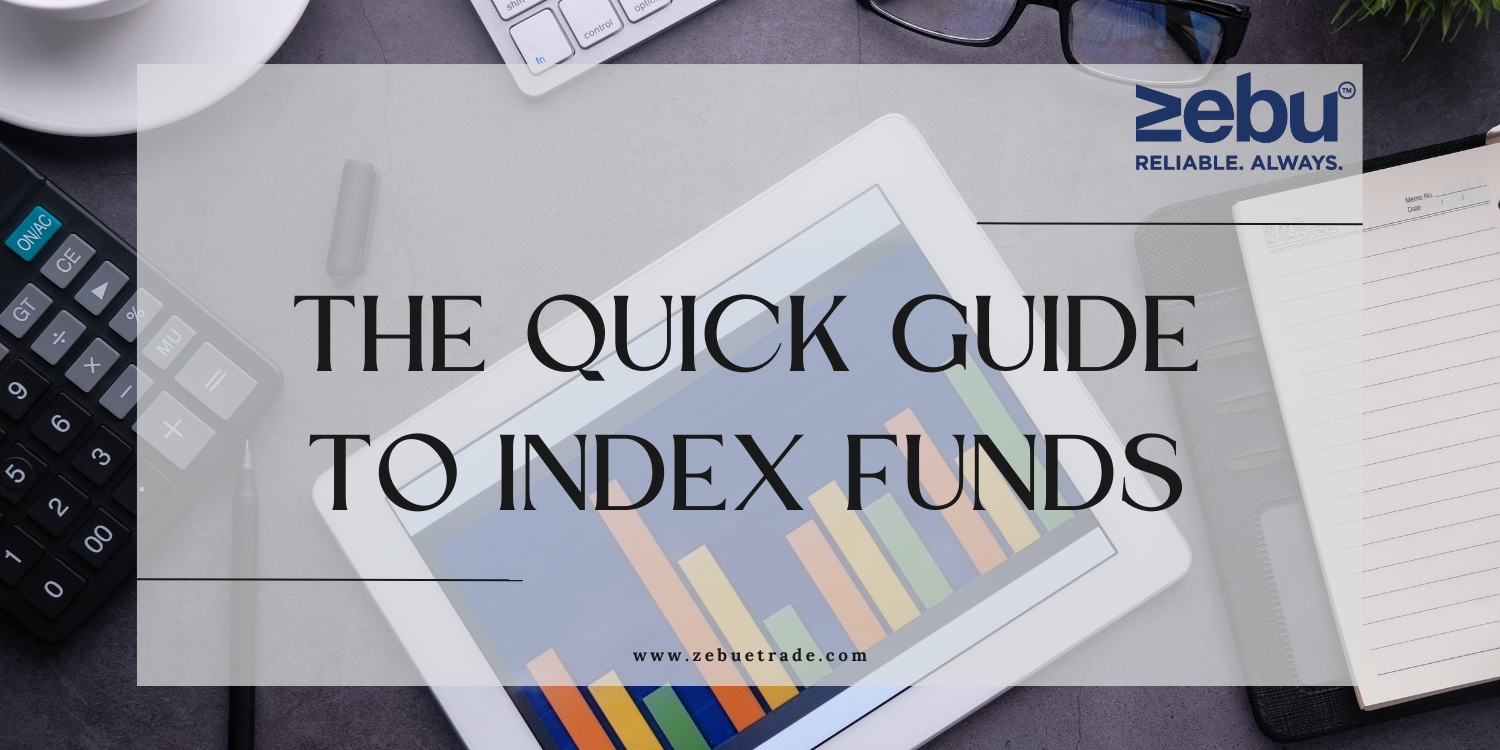
An index fund, also known as an index-tied or index-tracked fund, is a mutual fund that mimics an index’s portfolio.
What is an Index Fund
Investors think of index funds as an instrument to diversify their portfolio – they simply give the same returns that you might get if indices were purchasable. Since popular indices are not susceptible to rapid movements, index funds are a safe bet for risk-averse investors.They simply ensure a performance that is theoretically similar to the index movements.
Because index funds are not actively managed, they are less expensive. They will not outperform an index but simply replicate its movements. They help investors diversify and balance the risk in their portfolio.
How Do They Work?
If you consider an index fund that mirror’s Nifty 50, it will contain the same stocks as the index and with the same weightage. Index funds are called as passive fund management because they simply monitor the movement of an index. Based on the composition of the underlying index, a fund manager divides your funds with the right weightage for certain stocks. Index funds, unlike actively managed funds, do not have their own team of research experts to find opportunities and pick stocks.
While an actively managed fund aims to outperform its benchmark, an index fund’s goal is to mirror its index’s performance. Index funds usually produce returns that are similar to the benchmark. However, there will be a marginal difference between the returns of both. This is the tracking error and it is the fund manager’s job to reduce this error as much as possible.
Who Should Put Their Money in Index Funds?
As with any investment, you need to first understand your risk tolerance and investment objectives. Index funds are for those who do not want high risk but are also realistic about lower returns. If you do not have a lot of time to monitor the stock markets every year, then this one is for you. You can choose a highly liquid Sensex or Nifty index fund if you want to invest in stocks but don’t want to accept the risks associated with actively managed equity funds. While index funds will give you returns that are comparable to an index’s movements, you need to opt for more actively managed funds if you want to outperform the market.
What to Consider as an Investor
As with any investment, one of the first things to consider is the platform that you are going to buy these funds on. With Zebu’s lowest brokerage fees, and our credibility as one of India’s best share market brokers, we guarantee that you will have access to the best trading accounts in the country.
Risk
Index funds are less susceptible to equity-related volatility and dangers because they track an index. If you want to make a lot of money in a bull market, index funds are a great place to start. During a market downturn, though, you’ll have to switch to actively managed funds. Because during bear markets, index funds tend to lose value. As a result, having a mix of actively managed funds and index funds in your portfolio is recommended.
Return
As we have mentioned before, the returns from index funds will be very similar to index benchmarks as it simply replicates its moves. These funds aren’t trying to outperform the benchmark, but rather to copy it. However, due to tracking issues, the results generated may not be on par with the index. There may be differences in actual index returns. As a result, before investing in an index fund, it is recommended to select funds with the lowest tracking error. The smaller the errors, the better the fund’s performance.
Investment cost
Since index funds are passively managed, their expense ratios are much lower than that of actively managed mutual funds. This is because there is no investment strategy from a fund manager – they simply monitor the weightage of stocks in an index and manage that in an index fund. As a result, the expense ratio differs. Any two index funds that track the Nifty will produce similar returns. The expense ratio will be the only change. Because the fund has a reduced expense ratio, it will yield larger returns on investment.
Time frame
Individuals with a long-term investment horizon will generally benefit from index funds. Typically, the fund sees a lot of volatility in the short run, but over time, say more than seven years, it averages out to generate returns in the 10% -12% level. Those who invest in index funds must have the patience to wait at least that long. Only then will they be able to appreciate its returns.
Goals
Long-term financial goals, such as wealth accumulation or retirement planning, may be best achieved using equity funds. These funds are high-risk, high-return sanctuary and can help you build wealth and possibly retire early. Therefore, if your objective is to earn more than the index benchmark, then index funds might not be the one for you.
Taxation
Because index funds are a type of equity fund, they are taxed similarly to other equity fund plans. An index fund’s dividends are added to your overall income and taxed at your marginal tax rate. Index funds are taxed at different rates depending on how long they are held. Short-term capital gains are realised when you redeem your units during a one-year holding period. These profits are taxed at a 15 per cent flat rate. Long-term capital gains are gains realised when you sell your fund units after a one-year holding period. However, if your gains are under Rs 1,00,000 per year, they are tax-free. Any gains in excess of this amount are subject to a 10% tax rate, with no indexation.
If you choose to go for an index fund, there are several options for you to choose from. A few of them include ICICI prudential NV20 ETF, UTI Sensex ETF and SBI ETF Nifty Next 50. You can explore these options and more with Zebu. Our lowest brokerage fees allow you to purchase the index fund of your choice effortlessly, making yours one of the best trading accounts. As one of India’s leading share market brokers, we will help you make the right decision when it comes to index funds.
